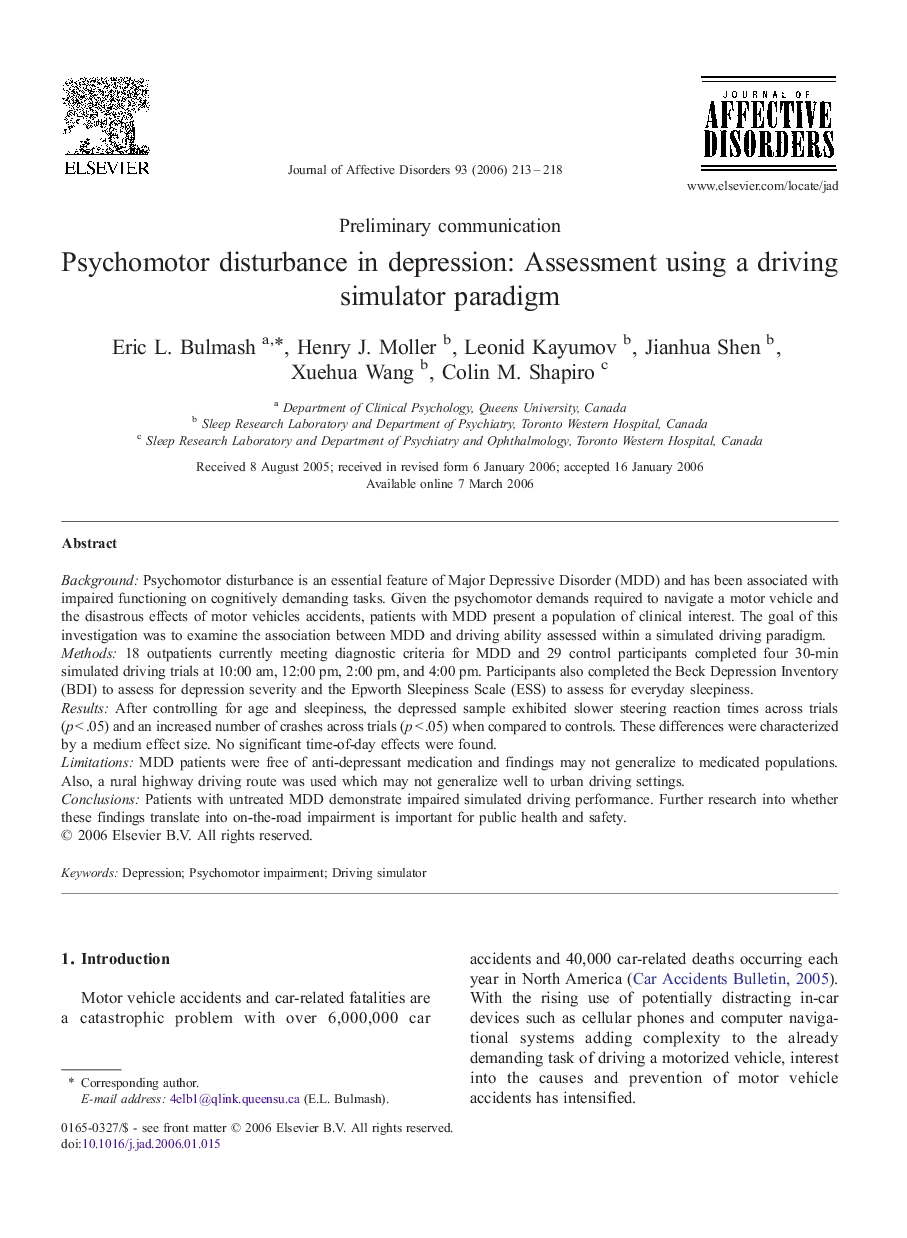| Article ID | Journal | Published Year | Pages | File Type |
|---|---|---|---|---|
| 4188180 | Journal of Affective Disorders | 2006 | 6 Pages |
BackgroundPsychomotor disturbance is an essential feature of Major Depressive Disorder (MDD) and has been associated with impaired functioning on cognitively demanding tasks. Given the psychomotor demands required to navigate a motor vehicle and the disastrous effects of motor vehicles accidents, patients with MDD present a population of clinical interest. The goal of this investigation was to examine the association between MDD and driving ability assessed within a simulated driving paradigm.Methods18 outpatients currently meeting diagnostic criteria for MDD and 29 control participants completed four 30-min simulated driving trials at 10:00 am, 12:00 pm, 2:00 pm, and 4:00 pm. Participants also completed the Beck Depression Inventory (BDI) to assess for depression severity and the Epworth Sleepiness Scale (ESS) to assess for everyday sleepiness.ResultsAfter controlling for age and sleepiness, the depressed sample exhibited slower steering reaction times across trials (p < .05) and an increased number of crashes across trials (p < .05) when compared to controls. These differences were characterized by a medium effect size. No significant time-of-day effects were found.LimitationsMDD patients were free of anti-depressant medication and findings may not generalize to medicated populations. Also, a rural highway driving route was used which may not generalize well to urban driving settings.ConclusionsPatients with untreated MDD demonstrate impaired simulated driving performance. Further research into whether these findings translate into on-the-road impairment is important for public health and safety.
